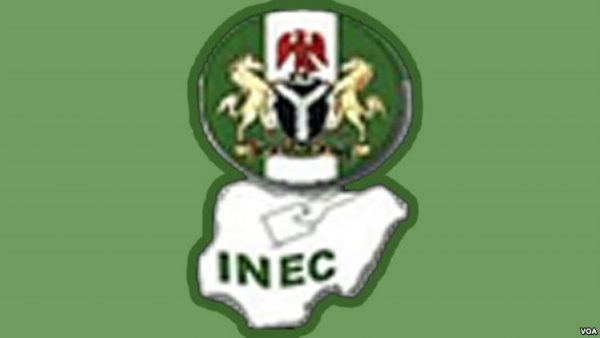The Independent National Electoral Commission has said that electoral process in Nigeria was replete with conflict and challenges with each phase constituting potential and real dangers.
National Commissioner at the commission, Prof. Anthonia Simbine, stated this the opening of a five-day workshop on: “Leadership and Conflict Management Skills for Electoral Stakeholders Training for INEC Staff” in Abuja on Tuesday.
The training is to equip INEC staff with skills to analyse, mitigate and manage escalation of electoral violence and conflicts ahead of 2019 general elections.
It is supported by European Union Centre for Electoral Support within the context of European Union Support Democratic Governance in Nigeria.
According to Simbine, election and the electoral process are by nature conflict-laden and fraught with several challenges that often test the skills of staff of Electoral Management Bodies.
She said that the situation was particularly so in developing democracies where elections were at times perceived as warfare that must be won at all cost.
Simbine, who is the Chairman, Election and Party Monitoring Committee of INEC, said that a cursory examination of a typical electoral cycle revealed that every phase was fraught with danger.
Simbine said: “Scholars have noted that elections have emerged as one of the most important and contentious feature of the political life on the African continent and this is widely debated throughout Africa and among international observers.
“Election which is supposed to be a means to an end, that is, good governance, is often seen as an end itself. So much contestation surrounds our elections with little or scant respect for rule of law and due process.
“Typically, an election cycle which is a tool designed to visualize the cycle’s nature of various electoral component with different stakeholders interacting and influencing each other in each period, is now a veritable theatre of conflict.
“The three basic phases in the electoral cycle namely Pre-electoral, Electoral and Post-electoral periods, throw up different choices with policy implications that are not often agreeable to the various stakeholders.’’
She said that the workshop was to improve electoral stakeholders’ leadership skills and take on broad means for identifying, analysing, mitigating and managing escalation of electoral violence and conflict during respective electoral periods.
He said: “The commission, over time, realized that the cost of litigation arising from these conflicts and their negative consequences contribute in no small measure to stifling the growth and consolidation of the country’s democracy.
“Hence, the creation of the Directorate of Alternative Dispute Resolution.
“In collaboration with the EPM Department, the ADR directorate has helped to solve quite several intra and inter-party conflicts that would have ordinarily escalated.
“Thus, organizing this workshop will in no small measure enhance the leadership and conflict management skills of the participants.
“We believe it will effectively prepare them for greater efficiency, especially as the commission inches close to the 2019 general elections.’’
The Project Coordinator, ECES Nigeria, Rudolf Elbing, in his remarks, said that given the competitive nature of elections, conflicts among stakeholders were bound to occur at various stages of the electoral cycle, but must be effectively managed.
Elbing said that in managing the conflicts, there will also be need to resolve disputes among stakeholders throughout negotiation and mediation.
He said: “Hence the importance to strengthen the electoral administration leadership skills to create the conditions for efficiency, effectiveness and sustainability in their outcomes in areas of institutional capacity-building.
“The capacity-building will in turn improve drastically on the level of integrity and credibility of the electoral process in the face of distrust from stakeholders and help minimize risks of degeneration of electoral conflict into full blown deadly clashes.’’
The coordinator said that the workshop was aimed at strengthening the leadership capacities of electoral stakeholders, increase their level of confidence and self-awareness.
He said the workshop would also to provide participants with necessary tools to enhance dialogue development band dialogue based on decision-making throughout an electoral period.
He added: “It is expected that the training will strengthen the long term capacity of participants and the commission to effectively prevent and mitigate election related conflict and its triggers.’’
Trending
- How I survived in kidnappers’ den – General Tsiga
- ICPC unveils five thematic areas to combat corruption, enhance fiscal transparency in LGs
- Senate will consider tax reform bills after resumption, Bamidele reveals
- Natasha: Constituents thank INEC for recognising 208,132 signatures
- Umahi apologises for Independence Bridge closure, vows disciplinary action
- New NNPC Group CEO: Brilliance, experience, acumen, by Kunle Akogun
- Oyebanji unfolds infrastructure upgrade plan for EKSU
- Yabatech blazes trail in gender response pedagogy training, certification in tertiary institutions


